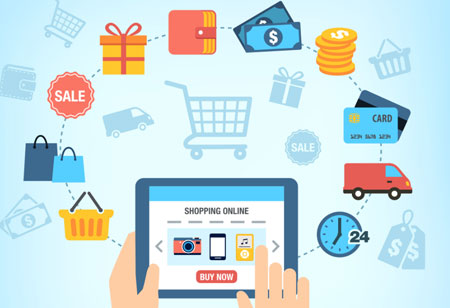THANK YOU FOR SUBSCRIBING
The Future of Personalized Mobile Application
Users expect a powerful mobile app experience now more than ever, with mobile apps impacting the way we work, shop, interact, and care for our health.

By
Apac CIOOutlook | Wednesday, December 15, 2021
Stay ahead of the industry with exclusive feature stories on the top companies, expert insights and the latest news delivered straight to your inbox. Subscribe today.
Incorporating new technology and massive volumes of data and analytics into low-code and no-code applications are becoming increasingly essential.
Fremont, CA: Users expect a powerful mobile app experience now more than ever, with mobile apps impacting the way we work, shop, interact, and care for our health. It's probably safe to assume that the activities post COVID-19 pandemic has increased mobile app usage even more. The latest mobile app trends are primarily concerned with increasing customer engagement, improving user experience, and attracting more users. As a result, trends incorporating new technology and massive volumes of data and analytics into low-code and no-code applications are becoming increasingly essential.
Let’s just give a look at trends that will completely transform the mobile app development landscape in 2022.
1. Augmented Reality
AR being already used by several industries, it has seen an interesting adoption in app development to provide more personalized experiences to the users. For instance, sellers can showcase their products and services in a more engaging way to their customers. Customers too can visualize what a specific product like a piece of cloth would look like on them before making a purchase. So, AR offers a win-win situation for both sellers and buyers.
2. Touchless UI
Now, both developers and users desire mobile apps that are unique and require little work from the user. As a result, developers are now focused on developing voice or gesture-based interfaces by 2022. Such interfaces have the ability to completely change the game for the elderly or differently abled persons.
3. Blockchain
Misuse data has long been a major worry among app users. Blockchain solves these problems by providing decentralised databases. Apps powered by this technology are end-to-end encrypted, which means that no one company or individual owns or has access to the data. Blockchain is the future of more secure digital transactions and the interchange of sensitive user data.
4. AI and Machine Learning
AI that uses predictive analytics and machine learning algorithms is becoming a crucial technology to creating personalized user experiences for mobile apps. Navigation, speech recognition, and natural language processing all require AI (NLP). Behavioral algorithms, based on AI, also helps to improve security by studying user behaviour and detecting fraud, suspicious activity, and potential data breaches.





